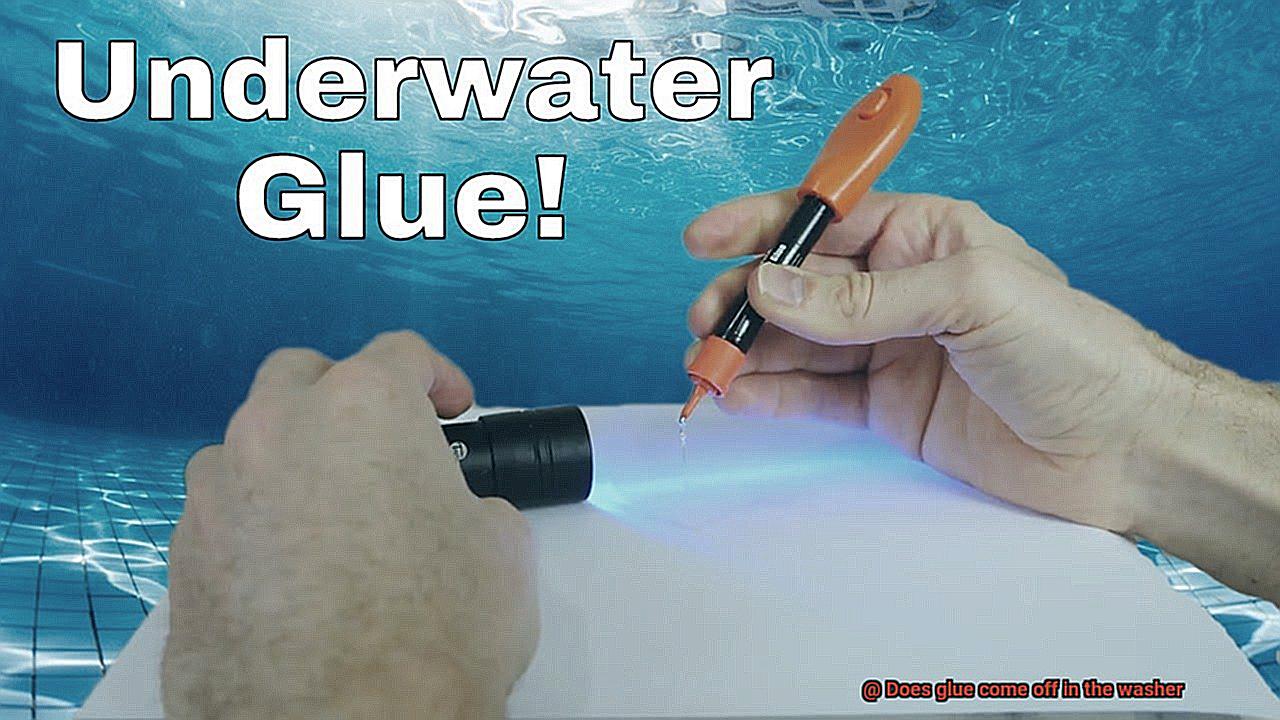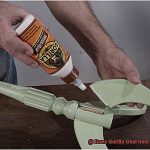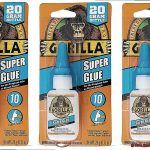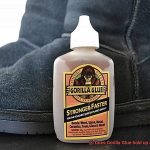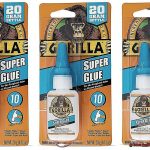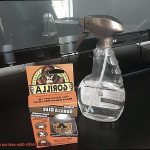Imagine this: you’re sorting through your laundry, and you realize that a glob of glue has found its way onto one of your favorite shirts. Maybe it’s from a DIY project gone awry, or maybe your little ones got a bit too enthusiastic with their art supplies. Regardless of how it happened, the question remains: will the glue come off in the washer?
It’s a crucial consideration before throwing that garment into the wash cycle. After all, nobody wants to ruin their clothes or spend hours scrubbing dried glue out of their washing machine. In this blog post, we’ll dive deep into the topic to help you understand everything you need to know about washing fabric stained with glue.
We’ll explore different types of glue and their composition, as well as how they react when exposed to water and detergent. We’ll also take into account the type of fabric you’re dealing with and how it can impact your efforts to remove the stain. And if all else fails, we’ll provide several methods for removing dried glue from fabric.
So, whether you’re facing a sticky situation with your laundry or just curious about this unique challenge, keep reading for all the answers you need – because we’ve got you covered.
What is Glue?
Contents
Well, wonder no more. Glue is a versatile and essential tool found in almost every home, used for various purposes like crafting, woodworking, and repairing.
At its core, glue is an adhesive substance used to bind two surfaces together. It comes in many different forms such as liquid, paste, or solid sticks. The primary function of glue is to create a strong bond between the surfaces, ensuring that they stay together over time.
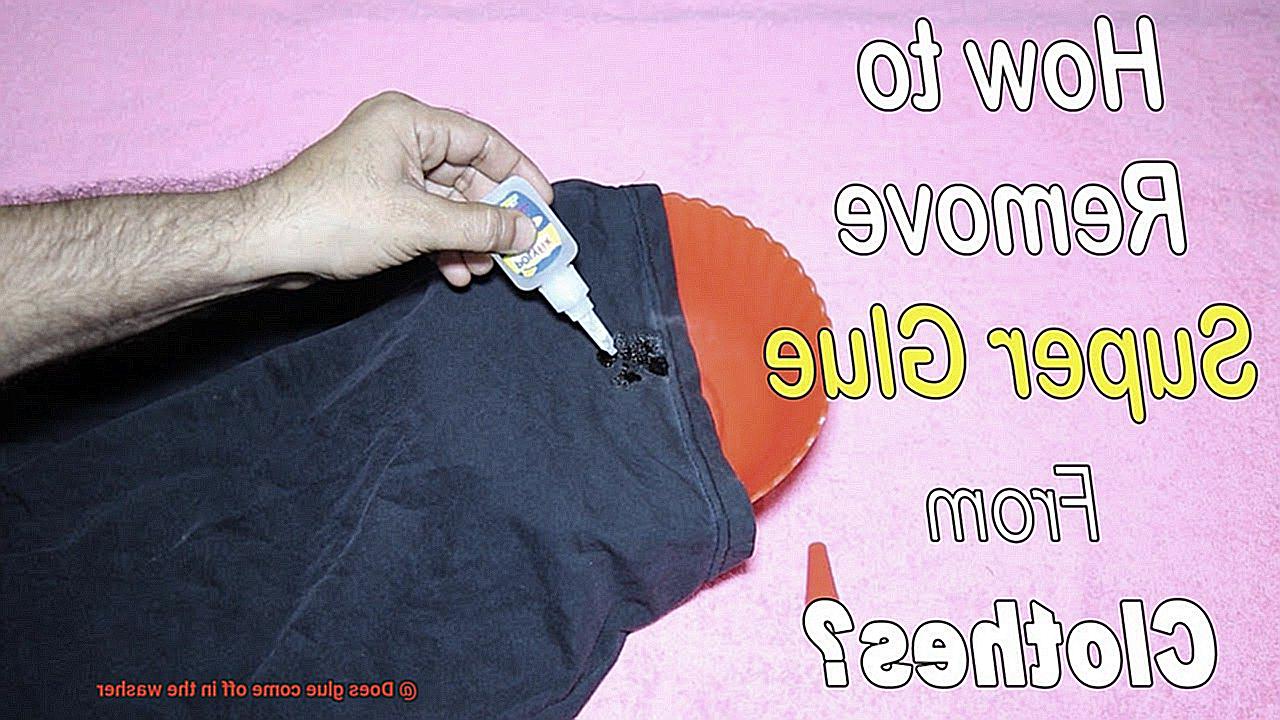
There are many different types of glue available on the market, each with its unique properties and characteristics. Whether you need white glue for paper crafts, super glue for quick repairs, epoxy glue for heavy-duty projects, or hot glue for a fast-drying option, there is a type of glue perfect for your specific needs.
The composition of glue can vary depending on the type and brand; however, all glues work similarly by creating a chemical bond between two surfaces. Typically made from natural or synthetic materials such as polymers, resins, and solvents, the exact composition can vary.
It’s important to note that water-soluble glues like white glue or school glue can easily be removed by soaking fabric in warm water before washing it in the machine. However, non-water-soluble glues like superglue or epoxy require different removal methods like using acetone or rubbing alcohol.
Types of Glue
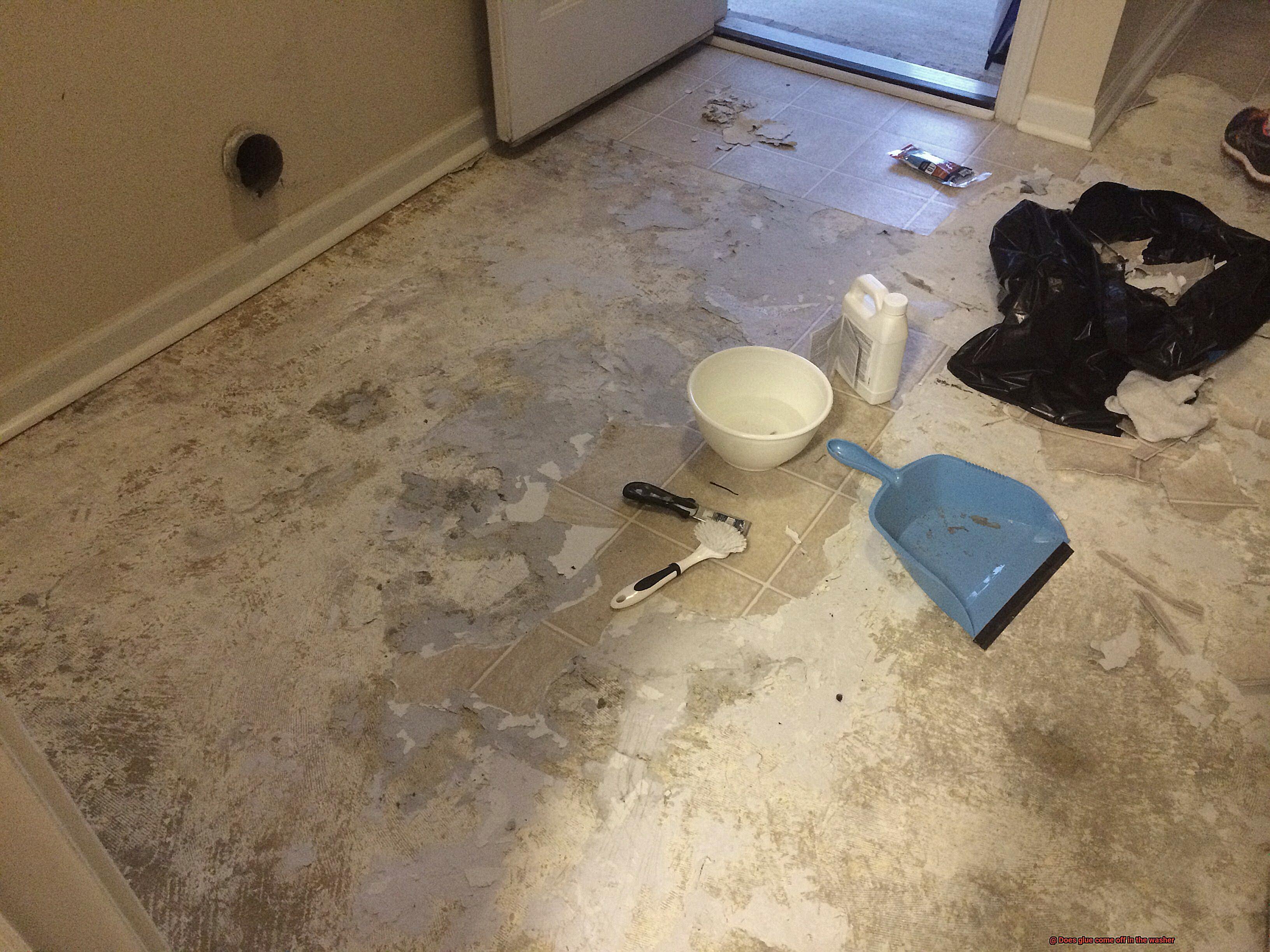
When it comes to glue, there are countless options available, each with their unique properties and intended uses. From crafting to automotive repairs, knowing which type of glue to use for your project can make all the difference.
One of the most common types of glue is PVA or white glue. This water-soluble adhesive is perfect for paper, wood, and fabric and dries clear, making it ideal for crafting and school projects. For small repairs that require a quick fix, superglue or cyanoacrylate is the way to go. This type of glue creates a strong bond in seconds and is perfect for fixing household items like broken ceramics or toys.
For heavy-duty projects that require a strong bond between almost any material, epoxy is the go-to adhesive. This two-part adhesive sets quickly and can bond metal, plastics, and even wood. If you need an adhesive that can handle extreme temperatures and water exposure, silicone adhesive is the way to go. This waterproof and heat-resistant adhesive is commonly used in plumbing and automotive repairs.
If your project involves woodworking, carpenter’s glue or wood glue is the adhesive for you. As the name suggests, this adhesive is specifically designed for bonding wood and creates a strong and durable bond that can withstand wear and tear over time.
For projects that require a permanent bond between two surfaces, contact cement is a great option. This type of glue creates an unbreakable bond between two surfaces, but it’s essential to use it in a well-ventilated area because of its strong odor.
It’s important to note that not all types of glue are suitable for washing. Some adhesives may dissolve or lose their strength when exposed to water or heat. Therefore, it’s essential to read the label or packaging of the glue to determine if it’s safe for washing.
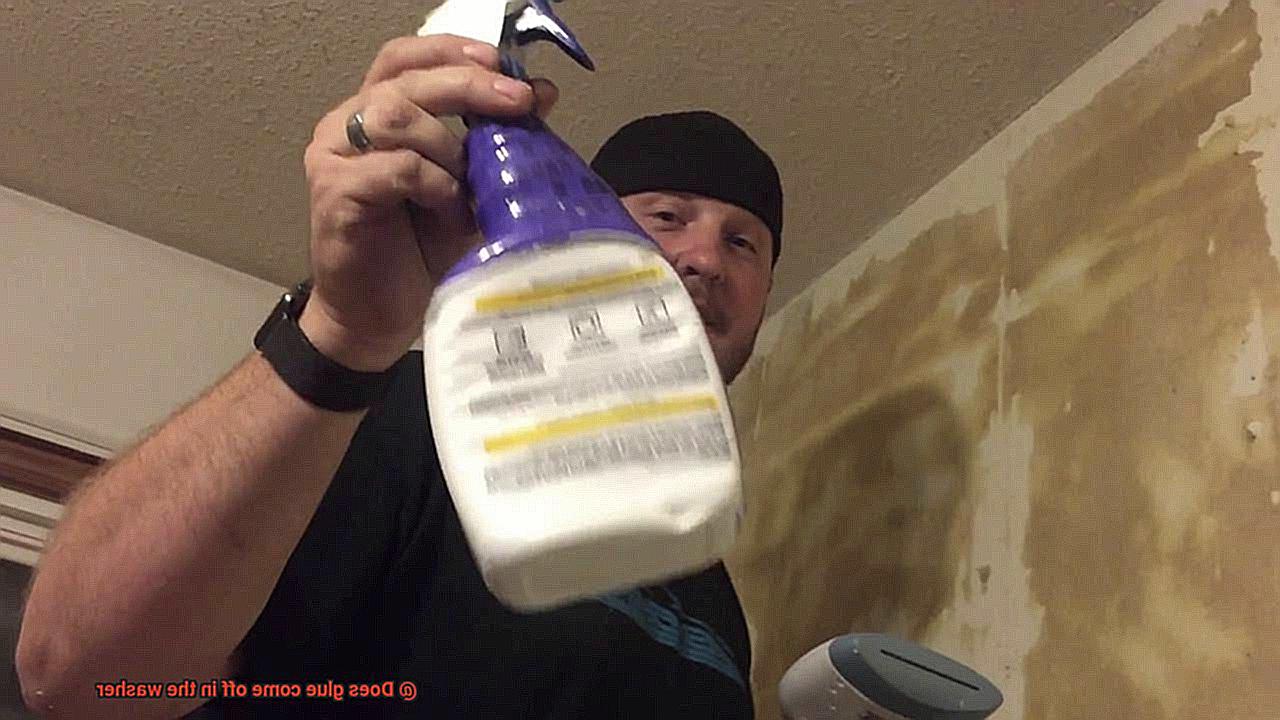
Water-Soluble Glues and Removal Methods
These temporary adhesives are a popular choice for their ease of use and convenience. But what happens when it’s time to remove them?
First things first, it’s essential to identify the type of glue used. Some water-soluble glues may require specific removal methods, which can be found on the label or by contacting the manufacturer. Following these instructions is crucial to avoid any damage to the fabric or setting the glue permanently.
If the glue has not completely dried, removing it is as simple as throwing it in the washer with warm or hot water and a mild detergent. However, be mindful of avoiding bleach or fabric softeners as they can both harm the fabric and glue. On the other hand, if the glue has dried entirely or is being stubborn, pre-treating the stain before washing may be necessary.
But what if you don’t have a commercial stain remover at home? Fear not. You can create a solution using equal parts vinegar and water or rubbing alcohol and water. Apply this solution to the stain and let it sit for 10-15 minutes before washing as usual.
It’s worth noting that while water-soluble glues are generally easy to remove, they may not be suitable for all applications. If you need a stronger bond or a more permanent solution, consider using a different type of adhesive instead. Always remember to test any new product on a small, inconspicuous area before using it on a larger scale.
Non-Water Soluble Glues and Removal Methods
As an expert on the subject, I am here to guide you through the different types of non-water soluble glues and the specialized removal methods needed to get them out of your fabrics.
Firstly, let’s talk about epoxy glue. This formidable adhesive is commonly used in industrial and construction settings, and it is resistant to water and detergents. However, removing epoxy from clothing is possible with the use of a solvent such as acetone or rubbing alcohol. Gently apply the solvent to the affected area and let it sit for a few minutes before carefully rubbing and washing it off with warm water.
Another common type of non-water soluble glue is hot glue, which adheres quickly and strongly to fabric fibers, making it challenging to remove from clothing. To remove hot glue from your clothes, start by scraping off as much of the glue as possible. Then, use a solvent or removal method such as rubbing alcohol or nail polish remover.
Other non-water soluble glues include contact cement, superglue, or silicone adhesive. Each type of glue may require a specific removal method depending on the fabric they are adhered to and the strength of the bond. For instance, superglue can be removed from clothing using acetone or nail polish remover.
When dealing with non-water soluble glues, always follow any safety precautions listed on the solvent or removal product being used. Also, it’s essential to test any removal method on a small, inconspicuous area of the fabric before attempting to remove the glue from a larger area.
Tips for Removing Glue from Fabric
Glue is a fantastic tool for crafting, fixing, and bonding. However, when it accidentally gets on your clothes or other fabrics, it can be a real headache. Luckily, there are various methods to remove glue from fabric, and it’s essential to identify the type of glue you’re dealing with to apply the right approach.
Acting fast is crucial as the longer the glue stays on the fabric, the harder it will be to remove. If you’re dealing with water-soluble glues like school glue or white glue, soak the fabric in warm water and detergent before washing it in the machine. However, stronger adhesives like superglue or hot glue require a more heavy-duty approach.
One effective method for removing these tougher glues is to use a solvent like rubbing alcohol or acetone. Apply the solvent to the affected area using a cotton ball or swab, and let it sit for a few minutes before gently rubbing with a soft-bristled brush. Repeat until the glue is gone. This method works best for sturdy fabrics that can withstand some pressure.
If you prefer a gentler option that won’t harm delicate fabrics, try soaking the affected area in a mixture of warm water and laundry detergent before scrubbing with a soft-bristled brush. This method may take longer than using a solvent, but it’s safe for delicate fabrics.
For really stubborn stains that won’t budge, try using a mixture of vinegar and baking soda. Apply the mixture to the affected area and let it sit for several minutes before rinsing with warm water. This method can be effective for removing both dried and wet glue stains.
If none of these methods work, don’t fret. Commercial products specifically designed for removing glue from fabric are readily available in most hardware or home improvement stores. These products can be particularly useful for tougher stains and save you time and effort.
Remember to test any solution on a small, inconspicuous area first to ensure it doesn’t cause any damage or discoloration. And always wash the fabric separately after removing any glue residue to avoid transferring it onto other garments in the load.
hCjoBMmCyx4″ >
Also Read: How To Remove Glue From Stainless Steel?
Conclusion
To sum it up, whether or not glue comes off in the washer depends on multiple factors. The type of glue and fabric involved are key considerations. Water-soluble glues like white or school glue are easy to remove by soaking the fabric in warm water before washing it in the machine. However, non-water-soluble glues like superglue or epoxy require different removal methods such as using acetone or rubbing alcohol.
It’s important to keep in mind that not all glues are suitable for washing. Some adhesives may dissolve or lose their strength when exposed to water or heat. So, always check the label or packaging of the glue to determine if it’s safe for washing.
If you’re dealing with a sticky situation involving glue-stained fabric, there are various methods for removing dried glue from fabric. From using solvents like rubbing alcohol or acetone to soaking in a mixture of warm water and laundry detergent, there is a solution for every situation.
Remember to test any new product or method on a small area first before applying it on a larger scale.

